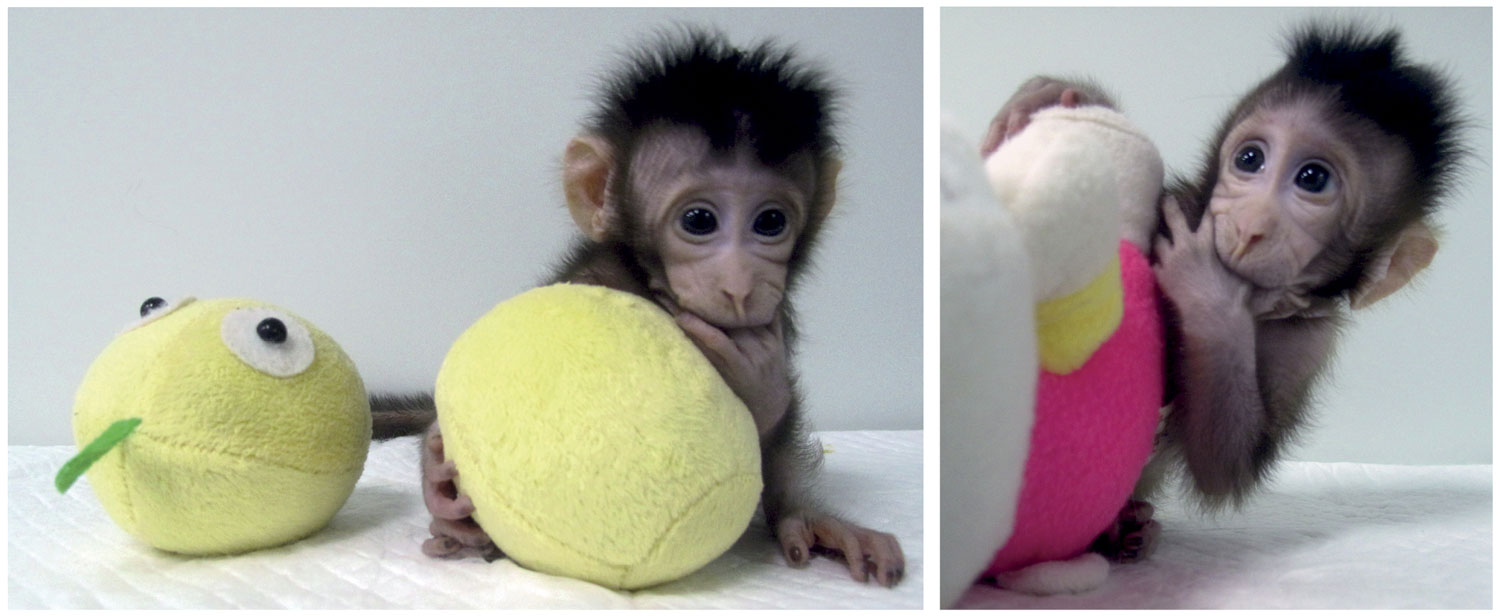Two female monkeys from Asia are the first primates to be cloned using the same technique that created Dolly the sheep in the 1990s. Zhong Zhong and Hua Hua, of the cynomolgus species (Macaca fascicularis), are genetically identical. Their names are derived from the word zhonghua, which means China in Chinese. They were carried by different mothers and turned 8 weeks and 6 weeks old respectively on January 24. A team led by researcher Qiang Sun, from the Chinese Academy of Sciences, created the monkeys using somatic cell nuclear transfer. The technique involves inserting the nucleus of an adult cell (which is where genetic material is stored) into a denucleated egg cell. The first mammal produced by nuclear transfer was Dolly the sheep (1996–2003), who was cloned from the cell of an adult sheep in Scotland by biologists Ian Wilmut and Keith Campbell. Since then, 22 other mammal species have been cloned using the technique, but attempts on primates had never been successful until now. Qiang Sun and his colleagues transferred the nucleus of skin cells (fibroblasts) from an aborted cynomolgus fetus to denucleated egg cells. They then added specific compounds that promote embryo development. Their success rate was low: 79 embryos were implanted into the wombs of 21 monkeys, only six of which became pregnant. Zhong Zhong and Hua Hua were the only infants to be born and survive (Cell, January 24). Another test using genetic material from ovary cells produced two infants that died. In the US in 1999, biologist Gerald Schatten cloned Thetra, a female rhesus monkey (Macaca mulatta), using a simpler technique. The Chinese team believes primate cloning could create more realistic models for research into human diseases, as well as helping to recover endangered species.
RepublishGenetics
Chinese researchers clone monkeys using the same technique that created Dolly the sheep

Hua Hua (left) and Zhong Zhong (right), cloned by somatic cell nuclear transfer
Qiang Sun And Muming Poo / Chinese Academy Of Sciences

